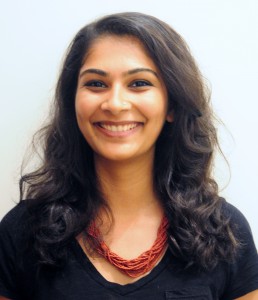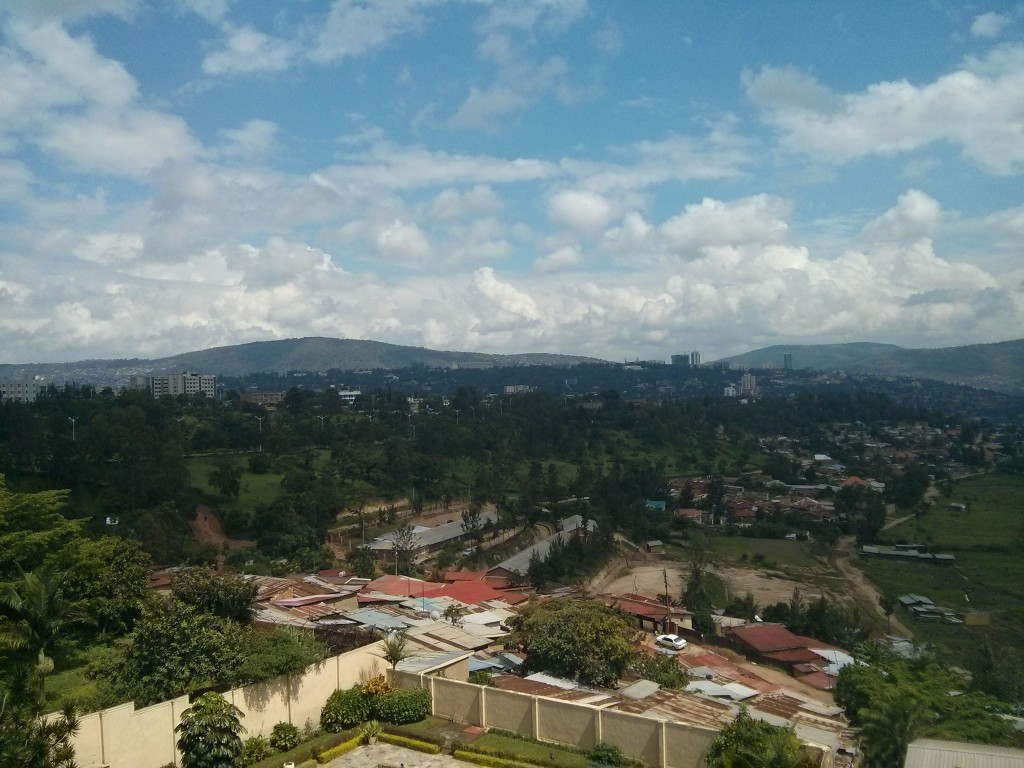Aditi’s internship in Rwanda
The second of our returning student bloggers to report this semester is Aditi, who spent her summer in Rwanda, where her experience taught her some lessons that she hadn’t anticipated.
 Thanks to the Leir Fellowship that supports Fletcher student internships, I was able to work in Rwanda over the past summer. It was my first experience traveling to Africa, but having spent time in India, the U.S., and South America, I felt as though I was well-prepared for what the experience might throw my way. In some ways, I was right: I wasn’t overwhelmed by the crowds, or paralyzed by the sight of poverty, or surprised at the presence of expensive restaurants and a thriving nightlife with international music playing at every club. In several other ways, however, I found that the experience was new in ways I had not anticipated.
Thanks to the Leir Fellowship that supports Fletcher student internships, I was able to work in Rwanda over the past summer. It was my first experience traveling to Africa, but having spent time in India, the U.S., and South America, I felt as though I was well-prepared for what the experience might throw my way. In some ways, I was right: I wasn’t overwhelmed by the crowds, or paralyzed by the sight of poverty, or surprised at the presence of expensive restaurants and a thriving nightlife with international music playing at every club. In several other ways, however, I found that the experience was new in ways I had not anticipated.
The organization I was working with, Manos de Madres Rwanda, works in partnership with a local clinic that has worked in Kigali for over a decade. The patients are women and children living with HIV/AIDS. Several grew up orphaned, and most are desperately poor. The clinic provides its patients with physical and psychological care, and Manos de Madres offered to partner with the clinic to provide the women with livelihoods and skills training. The organization has a program manager, a marketing manager who I helped hire during my time there, and three young “Cooperative Agents” who are part-time staff and also patients of the clinic. This team runs a number of different programs with various cooperatives of women: an organic market garden called Baho; a screen-printing business called Dutete; a jewelry-making cooperative called Ejo Hazaza; and a microloan program for young mothers.
My day-to-day work consisted of visiting each of the cooperatives and participating in their meetings, followed by team meetings with the Manos staff. Although I was originally hired to start work on Manos’ monitoring and evaluation of its programs, it quickly became clear that the need of the organization was improved general management. I had to be responsive to the needs of the organization, and although I wanted to test my newly-minted monitoring and evaluation skills, I realized that it would be a far more impactful contribution to help the team with its daily management and putting in place systems and processes. I spent a lot of my time conducting trainings with the team—on business plan creation, so they could work better with the cooperatives; on reporting; and on using Excel. I created a new reporting structure for the Manos team to use and trained them on how to fill out and submit reports.
 Living and working in Kigali was a mixed experience for me. It was my first time living in a country where I was absolutely unable to communicate with most people around me, and before this summer, I definitely underestimated the impact this would have on me. Being unable to communicate with the women we worked with was incredibly frustrating, as I always had to request translation or else be left out of the conversation. It made me deeply uncomfortable, and it has made me question the effectiveness of working in a country for which I have no local language or context skills. It will make me think twice about future career decisions, and tread carefully and think through my own assumptions before embarking on a career living or working in an environment where I do not speak the language.
Living and working in Kigali was a mixed experience for me. It was my first time living in a country where I was absolutely unable to communicate with most people around me, and before this summer, I definitely underestimated the impact this would have on me. Being unable to communicate with the women we worked with was incredibly frustrating, as I always had to request translation or else be left out of the conversation. It made me deeply uncomfortable, and it has made me question the effectiveness of working in a country for which I have no local language or context skills. It will make me think twice about future career decisions, and tread carefully and think through my own assumptions before embarking on a career living or working in an environment where I do not speak the language.
Aside from the personal growth and thoughts about how I would like to shape my career, I had the opportunity to see a lot of the country. I hiked up a volcano to see a crater lake at the top, and went on my first African safari at Akagera National Park. The country was phenomenally beautiful, with the bus rides being more than enough of a treat to justify a disappointing destination, had there actually been one!
I was also very interested to see how Rwanda is changing its national image from a country scarred by genocide, to one that is increasingly a tourist and investment destination. The process of building this new identity while remembering and memorializing the genocide is a tricky balance, and one that I am curious to learn more about.
Professionally and personally, this summer in Rwanda has helped me solidify how I want to build my life and career post Fletcher — it was a perfect way to tie together my first and second year at Fletcher.